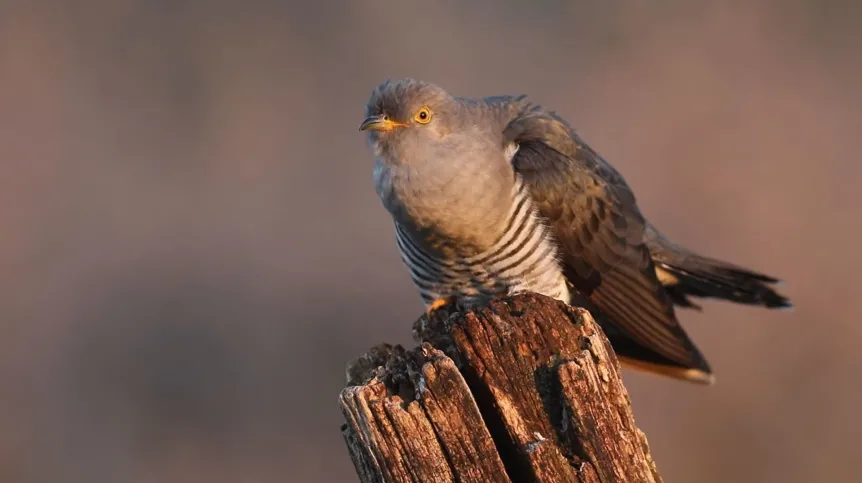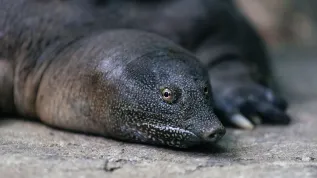
Cuckoos, which are breeding parasites, and the birds in whose nests they lay their eggs, have increasingly mismatched dates of spring arrivals. Additionally, they are out of synch with their prey: caterpillars and beetles, report naturalists from Poznań.
Over the past 36 years, cuckoos have started to appear earlier in the spring. However, the rate at which these birds adapt to climate change is slower than that of their hosts and the organisms they eat.
'Matching the time of arrival at breeding grounds in spring - both to hosts and food sources - is crucial for the migration of breeding parasites, such as cuckoos. Climate change may disrupt the interdependencies in the phenology of important life stages between cuckoos, their hosts and prey,’ says Dr. Peter Mikula, the first author of the study described in Royal Society Open Science.
Phenology is a field of biology that focuses on the life cycles of plants and animals and their relationships with environmental factors such as temperature, day length and precipitation. It is important for understanding the impact of climate change on ecosystems.
An international team including researchers from Poland discovered that our cuckoo (Cuculus canorus), which winters in Africa, generally arrives at the breeding grounds in Tatarstan earlier than the oriental cuckoo (C. optatus), which winters in southeast Asia and Australia.
Rising spring temperatures in recent years have caused both cuckoos and their hosts to arrive at their breeding areas earlier and earlier. These cuckoos' main prey, hairy caterpillars and large beetles, also appear at an earlier time in spring.
But the rate at which cuckoos adapted to these changes was slower than the rate at which their hosts (e.g., the birds in whose nests cuckoos lay their eggs) and prey (e.g., caterpillars and beetles) adapted. In other words, cuckoos failed to keep up with changes in their environment to the same extent as their hosts and prey.
Cuckoos are selective about the nests they lay their eggs in, and they stick to a specific type of diet. The authors of the paper show a significant asynchrony, i.e. a mismatch between the optimal time for cuckoo breeding and the availability of hosts and food sources.
'In Tatarstan, we have two species of cuckoos in one area, so there is probably competition between them. Populations of both cuckoo species are decreasing,’ adds Professor Piotr Tryjanowski from the University of Life Sciences in Poznań, co-author of the paper and creator of its concept.
According to the researcher, the temporal and spatial mismatch between cuckoos and their hosts could lead cuckoos to switch hosts and alter parasitism rates in host populations.
Environmental dependencies were described in the journal Royal Society Open Science by an international team of researchers from the TUM School of Life Sciences and the Institute for Advanced Study of the Technical University of Munich (Germany), the Czech University of Life Sciences in Prague, the University of Life Sciences in Poznań and the Tatarstan Academy of Sciences (Russia).
'Over the years, we have developed good cooperation with local researchers from Tatarstan, who collected long-term data on not only bird arrivals, but also other phenological information. This study would not be possible Without their help,’ says Professor Tryjanowski. (PAP)
PAP - Science in Poland
kol/ bar/. kap/
tr. RL













